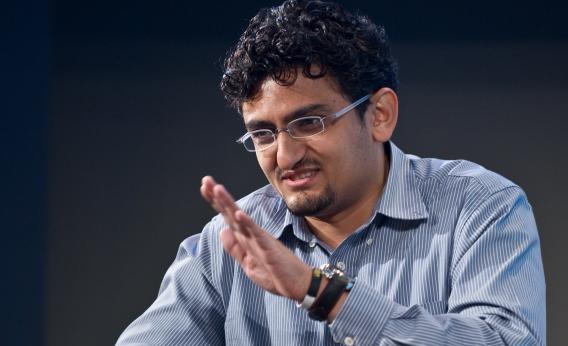In Facebook’s newest filing with the U.S. Securities and Exchange Commission (SEC), the company estimated 83 million “fake” users, approximately 8.7 percent of the social network, did not file not under a real legal name. That’s up pretty significantly: Facebook estimated, in the registration statement filed to the SEC in April, that 5 percent to 6 percent of users were fake as of Dec. 31, 2011. Facebook admits these are just estimates, so the real number could be lower—or much higher.
There are different types of “fake” monthly active users: 4.8 percent of all Facebook accounts are “duplicates,” meaning that a user has more than one profile under the same name; 2.4 percent are “user-misclassified,” meaning that a user operates under a pseudonym; and 1.5 percent are “undesirable,” used to “violate the terms of service” by spreading links to spam or malware.
Facebook’s terms of service outline that people risk deactivation by not using their real names on accounts. If an account is shut down, the user needs to get permission from Facebook to create a new one, according to the website’s Statement of Rights and Responsibilities. Why is it so important for Facebook to eliminate fake accounts? Third-party advertising was 83 percent of Facebook’s income for the first six months of 2012. Every fake account makes it difficult for the company to sell advertising. Furthermore, the “undesirable” accounts create security risks for the social network.
But as Facebook nears 1 billion users worldwide—and improves its ability to identify “fake accounts”—the company should reconsider its rigid approach. While many hide behind aliases as a way to cause trouble, other users require the privacy offered by pseudonymous accounts. Many of the “fake” accounts noted in the SEC reports originated in developing world nations such as Egypt, Turkey, and Indonesia, where governments are not terribly tolerant of free expression or criticism of authority.
Using fake names on Facebook was crucial to a major organizing effort of the 2011 Egyptian revolution, the “We Are All Khaled Said” Facebook page named in honor of an Egyptian man beaten to death by police in Alexandria. Wael Ghonim, who was Google’s head of marketing in the Middle East when he created the page in July 2010 using a fake name. Others involved with “We Are All Khaled Said” also used pseudonyms to avoid likewise being targeted by the government of then-President Hosni Mubarak.
Despite success organizing protest marches, Ghonim was in violation of the real name policy, so Facebook shut down the page he administered in November 2010. Because Ghonim and his circle knew people in Silicon Valley, Facebook staff restored the page, but only after Nadine Wahab, then a media relations professional, used her real name to take over as administrator. Wahab was based in D.C. at the time, but nevertheless, she says, using her real name made her concerned for her safety. “During the revolution I was the only person using their real account to administer the page, so I was terrified and took extra measures (sometimes very silly measures such as putting pillow feathers at my door to see if anyone had entered my apartment),” she told the Boston Review.
It’s impossible to eliminate all “fake” accounts because it’s tough to accurately attribute mobile users, to verify geographic location, and to track all fake account behavior without users reporting it to Facebook staff. So while a renewed assault on fake accounts will inevitably fail to accomplish Facebook’s business goals, it may end up hurting more activists—most of whom probably don’t have connections in Palo Alto.
Instead, Facebook should focus on the minority 1.5 percent of “undesirable” accounts, the 14 million fake accounts that spread malware and spam links—for both economic and political gain. Repressive governments such as Syria use Facebook for such phishing attacks to steal private information of activists, according to the Electronic Frontier Foundation. Auto clicks by spam accounts also make pay-per-click advertising less reliable.
With 955 million users Facebook could be the third largest nation in the world after India. No nation’s laws are perfect, but rules put in place by the social network’s executives should first aim to do no harm.
